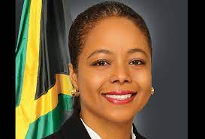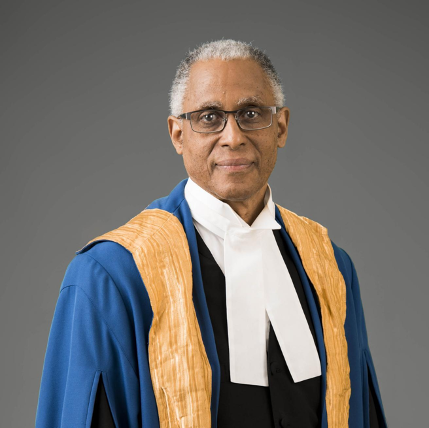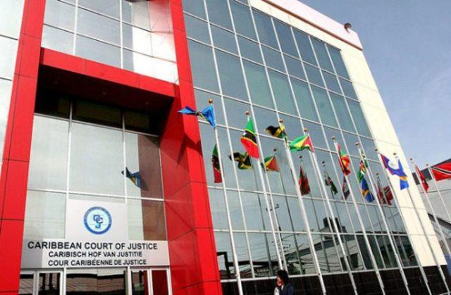Regional agency says it manages funds from Canadian donors with curious agendas
There is still no consensus on whether Jamaica should adopt the Caribbean Court of Justice (CCJ) as its final court, but Minister of Legal and Constitutional Affairs, Marlene Malahoo-Forte can see why the financing of some of the court’s projects by international donor funders might be concerning.
“The court is not to be involved in the legal struggle at all. The judicial branch is to stand separate and apart and any indication of any vesting in the legal struggle will raise questions about whether the institution is compromised generally speaking,” she said recently.
Malahoo-Forte who heads Jamaica’s 15-member Constitutional Reform Committee, was responding to a concern raised about the possibility of the court upholding the ideologies of international funders in making decisions. President of the CCJ, Justice Adrian Saunders had revealed during a Special Guest Lecture and Dinner last year, that the court has been the executing agency for the Canadian-funded Judiciary Reform and Institutional Strengthening (JURIST) project. The project has engaged in several initiatives, including the establishment of a sexual offences model court in Antigua and Barbuda. UN Women has also partnered with another group to develop model guidelines for gender-sensitive adjudication.
“The international community has identified the CCJ as an appropriate executing agency for donor funds designed for justice improvement throughout the region,” Justice Saunders stated at the time.
In order to limit undue pressure in delivering judgments favourable to any government, the CCJ’s expenditures, including the remuneration for judges are paid from a US $100 million Trust Fund that was established to allow the court to be free from government and other controls.


During a meeting with church leaders recently to answer questions relating to the Constitutional Reform Committee, Malahoo-Forte who heads the 15-member committee, revealed that the CCJ becoming Jamaican’s final court, has not been decided on, although the country intends to cut ties with the Monarchy.
Marlene Malahoo-Forte
“Right now, there is no consensus on what that final court should be. The parliamentary opposition is
a strong advocate for the Caribbean Court of Justice. Many of the supporters of the Jamaica Labour Party are saying that the government should consider an option like what obtains in Trinidad where the Privy Council is retained for some time, while we work out options; whether to go to the CCJ or to establish a Jamaican final court, which can be modelled on for example the Hong Kong model,” she told representatives from the Jamaica Umbrella Group of Churches (JUGC) and other para-church groups.
“The issue of the final court is not one which has to be determined now. It is not a matter requiring a constitutional referendum; it is not a per-requisite to Jamaica becoming a Republic,” she asserted.
The members of the Constitutional Reform Committee were announced by Prime Minister Andrew Holness on March 22. Initially, there were 14 members, but the chair of the JUGC Dr Elaine McCarthy, was added belatedly after the church community protested the inclusion of Canadian Professor Richard Albert whose public pronouncements in support of LGBTQ ideologies and abortion were widely circulated.


Justice Adrian Saunders
Opposition spokesperson on Industry, Investment & Global Logistics, Anthony Hylton, said the People’s National Party (PNP) has been clear and consistent in its call for the CCJ to become Jamaica’s final court. He feels that not every Jamaican can travel to the UK to deal with legal matters at the Privy Council, and on that basis, would be denied justice.
“For all kind of reasons, we cannot continue to loiter on the doorsteps of the UK, having repatriated two of our three structures of government and we are saying the third, which is justice, that justice should remain,” he said.
But some members of the church community fear that the CCJ will likely rule in favour of same-sex marriages despite the fact that buggery is a criminal offence. Pastor Joseph Buckland noted that the court’s “Judicial Code”
requires judges to follow the principles of “diversity” and should consider factors such as gender and sexual orientation, whereas the UK Privy Council takes into consideration the constitution of each country. Jamaica’s constitution currently does not support same-sex marriages.
“A judge must therefore be astute to take proactive measures to promote substantive equality and to proscribe discrimination, whether perpetuated by lawyers, litigants or Court staff,” a section of the CCJ code reads.
“Once Jamaica becomes a “Republic”, and has left the U.K. Privy Council and has joined the Caribbean Court of Justice, LGBT rights are certain to be won in the near future,” Pastor Buckland surmised.
In many Western and European countries, refusing to perform basic services for same-sex couples, is considered an act of discrimination. This includes refusing to officiate a wedding due to a personal view that the LGBTQI lifestyle is not in keeping with God’s will for mankind, based on biblical principals. A large percentage of Jamaicans are Christians and subscribe to this view.
The donation of a substantial amount of funding from international partners to CCJ and the Jamaican court system has therefore been a matter of concern for conservative Jamaicans. During the consultation with church leaders, King’s Counsel, Hugh Small insisted that the CCJ was only receiving funding from the Trust Fund, based on his reading.
“The only donors, the only persons, the only institutions, the only governments that contribute to that fund are the governments of the CARICOM Region and Jamaica is the largest donor to the funds that provide for all the facilities of the CCJ,” insisted the attorney who is a member of the Constitutional Reform Committee.
That pronouncement was however challenged by one of the pastors in attendance at the forum who pointed to investments being made by Canada.
The Canadian government has also invested heavily in the reforming of Jamaica’s Judicial system over the years and earlier this year invested CAD$ 12 million to a newly launched Social Justice (So-JUST) Project. The project is being implemented by the United Nations Development Programme (UNDP), in partnership with the Justice Ministry and the Office of the Chief Justice, with funding from Global Affairs Canada. Beneficiaries of the programme include the departments and agencies of the Justice Ministry, the courts, and the Office of the Director of Public Prosecutions.

